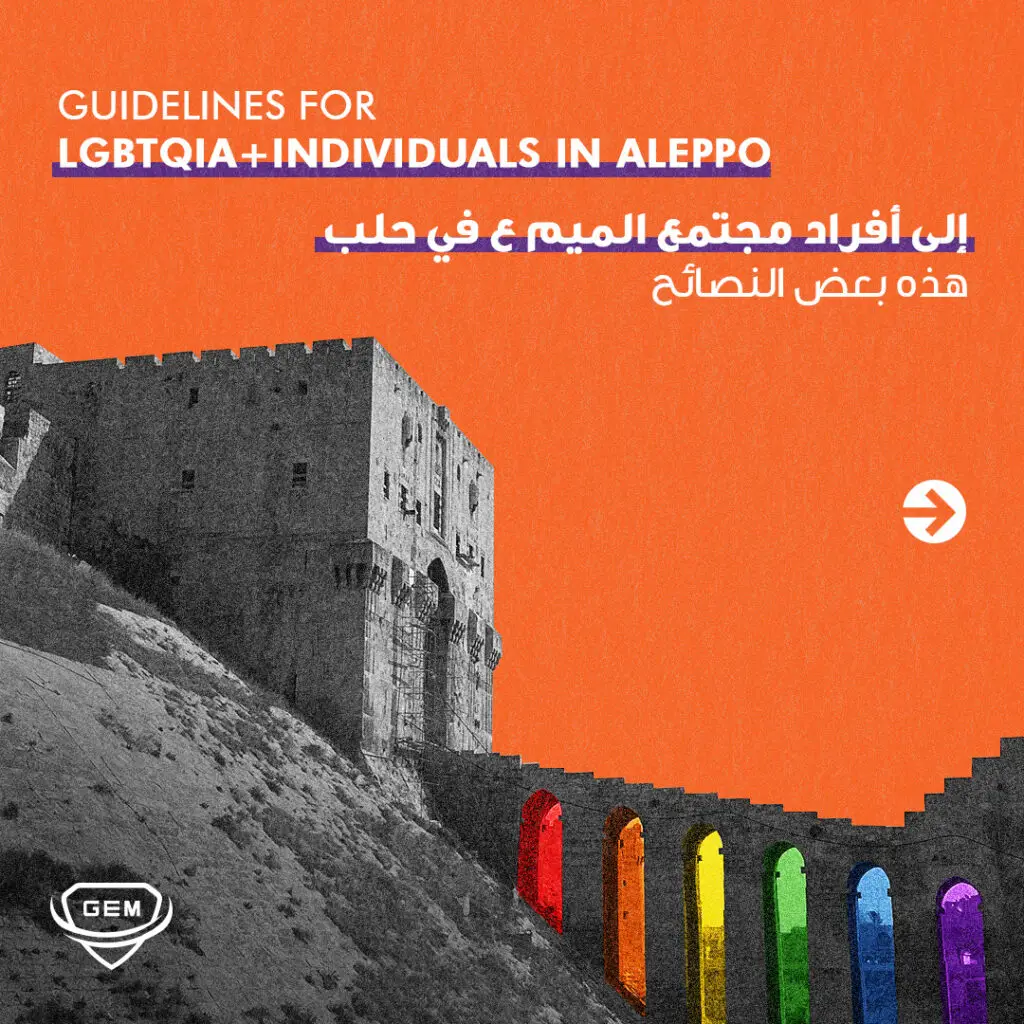In most Arab countries, LGBTQIA+ individuals—gay, bisexual, intersex, and transgender people—often face various forms of discrimination. This ranges from mistreatment in the workplace, schools, and universities, to even medical facilities like hospitals and health centers. They may be subjected to assault, systematic torture, and even death, especially in detention centers, prisons, or during abductions. Criminalization affects nearly every aspect of their daily lives.
In the case of Syria, which has been engulfed in conflict for over 13 years, the challenges are even greater, and the risks multiply. LGBTQIA+ individuals often face all the previously mentioned forms of discrimination and violence, and more, especially when the flames of escalation and battles are raging, as is currently the case.
Amid the recent escalation in Syria, particularly in Aleppo, Idlib, and Hama, and the shifts in control over these areas, the risks facing LGBTQIA+ individuals have significantly increased. In response, we urgently share key precautionary tips and guidelines to help avoid potential dangers as much as possible:
- Protect Digital Privacy:
Delete any information that could reveal your sexual or gender identity in case of raids or inspections at homes or security checkpoints. Regularly review your devices and accounts for sensitive data and use strong passwords. - Exercise Caution When Traveling and Avoid Gatherings:
Given the rapidly changing circumstances, it is advisable to stay in a safe location. If you must travel, exercise extreme caution, avoid crowded areas, gatherings, and stay away from checkpoints as much as possible. - Be Cautious of Misinformation and Stay Calm:
Avoid unreliable news sources to minimize confusion and stress caused by conflicting or false information. Rely on trusted outlets and verified updates. - Maintaining Calm is Essential:
Staying calm is essential to reduce extreme stress and facilitate clear thinking for seeking help and reliable information. - Seek Emotional, Psychological, and Social Support:
Reach out to organizations dedicated to supporting LGBTQIA+ individuals for assistance, solidarity, and guidance. - Plan to Relocate from the Area:
If possible, consider relocating to a safer location, especially for visibly LGBTQIA+ individuals. Ensure the transition is carried out through safe and reliable means.
The above are only general guidelines, meaning that each individual must assess their situation and the surrounding circumstances and make decisions accordingly. It is always important to remember that we are not alone and that there are people supporting us everywhere. Therefore, it is worth reiterating the importance of reaching out to close support networks, specialized organizations, and seeking assistance whenever needed.

